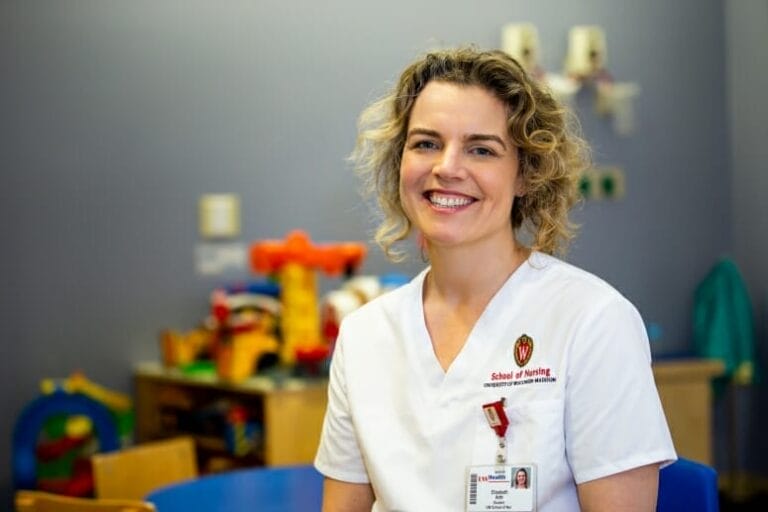
Why engineering professional degrees, and what are they?
Professional master’s programs are specialized educational paths designed to prepare students with practical skills and knowledge for specific careers or industries. Unlike traditional research programs, these professional programs focus on coursework and have set timelines, helping graduates finish faster and start their careers with stronger technical skills.
Pat Walsh, enrollment coach for accelerated engineering graduate programs through the Professional Degrees & Certificates program at UW–Madison, helps students explore the benefits of engineering professional programs, the various types available and how they can open doors to fulfilling career opportunities.
Walsh said prospective students should consider their options, learn how professional degrees can fit into their career goals and get answers to all of their questions about graduate school before diving into a particular program.
Why graduate school?
There are many reasons to pursue a master’s degree. Walsh shares the following benefits:
- Intellectual exploration and development
- Gain technical expertise on a specialized topic
- Get the job you want
- Increase salary potential, earn an average of 22 percent more*
- Do research that interests you
Graduate school allows you to explore topics of interest and potentially do research that sparks your intellect, but you can also increase your salary, advance in your career or even switch careers.
Pat Walsh
Research vs. professional programs
“The first key question to ask yourself when choosing a program is this: Are you aiming to pursue research opportunities, or do you plan to enter the workforce as a professional in your industry after graduation?” Walsh explains.
Professional programs are course-based, do not require a thesis and prepare students to enter the chosen field and apply their degree immediately. These degrees can be pursued online or on campus in an accelerated format. Both online and on-campus accelerated programs are either self-funded or employee-funded, and students are not eligible for tuition remission assistantships.
By contrast, Walsh says a research degree is the path to pursue if you’re interested in academia. Research programs require a student to complete a thesis and are only offered on campus. Students in research programs are eligible to apply for assistantships.
Both professional and research degrees increase salary potential and job opportunities, preparing students to enter the workforce. Time to degree completion will be a big variable between each program.
Why UW–Madison?
UW–Madison offers 11 on-campus accelerated engineering master’s programs, including biomedical engineering, civil & environmental engineering, electrical and computer engineering, industrial engineering, materials science and engineering, and mechanical engineering.
UW–Madison’s College of Engineering also offers many master’s degrees and capstone certificates 100 percent online through its Interdisciplinary Professional Programs.
“The University of Wisconsin–Madison College of Engineering’s graduate programs are ranked in the top 10 among U.S. public universities by U.S. News & World Report,” Walsh says. “Our programs are competitively priced, and graduates of UW–Madison join our worldwide alumni network of 450,000 Badgers.”
How to apply
When considering the accelerated engineering master’s programs at UW–Madison, Walsh shares:
- All programs are face-to-face
- Programs require 30 graduate credits
- Time-to-degree is typically 12 to 16 months
- Cost per credit is $1,200
- Programs are eligible for an international student visa
Application requirements include:
- Bachelor’s degree from an accredited institution
- Minimum undergrad GPA of 3.0 on a 4.0 scale on the last 60 credits of the degree
- Evidence of an English language proficiency
- Other requirements for specific programs
Go to grad.wisc.edu to apply. Application materials should include the following:
- Online application
- Resume/CV
- Statement of purpose/essay
- Transcripts (unofficial)
- Three letters of recommendation
Walsh is available to talk to prospective students about any of the information above, as well as other questions about engineering graduate degrees. Contact him at [email protected], 608-262-3769 or schedule a virtual meeting.
*Source: UW-Madison Academic Planning & Institutional Research Dataviz (in partnership with the U.S. Census Bureau and the Institute for Research on Innovation & Science). Percent increase identified by comparing median salary of engineering bachelor’s and master’s graduates one year out of college.



